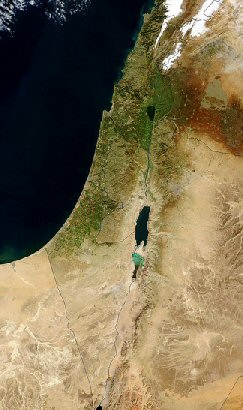EU foreign affairs ministers held a meeting in Brussels, on Friday, during which a number of conclusions on the Middle East Peace process were adopted, with special regard to the ongoing crisis in the Gaza Strip. According to WAFA Palestinian News and Info Agency, it was stressed during the meeting that ‘the situation in the Gaza Strip has been unsustainable for many years and a return to the status quo prior to the latest conflict is not an option.’
The EU Foreign Affairs Council has issued a press release outlining seven crucial points which iterate its conclusions on the Middle East, in the aftermath of recent Israeli military aggressions and ongoing Egyptian-backed blockade on Gaza.
See related — ‘Oxfam: Lifting of Gaza Blockade Crucial to Recovery’
Concerning the Cairo-based indirect talks to reach a permanent ceasefire agreement, the EU expressed ‘extreme concerns’, according to WAFA, about “the fragile situation on the ground following the recent conflict in the Gaza Strip”.
In this regard the Council “strongly welcomes the ceasefire which has been in place since 11 August and calls on all the parties concerned to agree on and abide by a durable ceasefire. It also commended the ‘considerable efforts’ and ‘commitment’ of Egypt to broker this and earlier deals.
The EU also collectively stated that it “remains concerned about the disastrous humanitarian situation in the Gaza Strip particularly the conditions of the displaced population, water supplies, electricity services, unexploded ordnance as well as destroyed and uninhabitable homes.”
It called for “increased efforts to facilitate, in accordance with international humanitarian law, immediate and unimpeded humanitarian access into the Gaza Strip including for humanitarian personnel and supplies, and for the mobilization of humanitarian aid for the population of Gaza.”
In line with recent statements from Ofxam and UNRWA, special note was given to the importance of lifting the eight-year blockade, adding that “the situation in the Gaza Strip has been unsustainable for many years and a return to the status quo prior to the latest conflict is not an option.”
In this regard: “A durable ceasefire must lead to a fundamental improvement in the living conditions for the Palestinian people in the Gaza Strip through the lifting of the Gaza closure regime, and it must end the threat to Israel posed by Hamas and other militant groups in Gaza as demonstrated by rocket attacks and tunnel construction,” calling for disarming the ‘militant groups’ in Gaza.
“In this context and subject to the requests of our partners based on the outcome of the Cairo talks, the EU reiterates its readiness to contribute to a comprehensive and sustainable solution enhancing the security, welfare and prosperity of Palestinians and Israelis alike. The EU will develop options for effective and comprehensive action in the following areas: movement and access, capacity building, verification and monitoring, humanitarian relief and post-conflict reconstruction and rehabilitation through international donor efforts including the eventual organisation of a donors’ conference,” stated the press release.
“The EU is ready to support a possible international mechanism endorsed by the UNSC, including through the reactivation and possible extension in scope and mandate of its EUBAM Rafah and EUPOL COPPS missions on the ground, including the launch of a training programme for Palestinian Authority customs personnel and police for redeployment in Gaza,” it further added.
The EU has demonstrated its willingness to contribute to “arrangements that prevent ‘illicit’ trafficking in arms and ammunition to the Gaza Strip and which can ensure the sustained re-opening of Gaza’s crossing points,” as well as to “study options for an internationally-supervised mechanism to enable full access and movement through all Gaza ports of entry.”
The halting of Israeli aggression on Gaza and administering to the situation in Gaza should fall within the broader framework of achieving a two-state solution, according to the EU:
“The EU recalls that the situation in the Gaza Strip has to be seen within the broader context of the Middle East Peace Process and the prospect of comprehensive peace where two democratic states, Israel and Palestine, live side by side in peace with secure and recognized borders.
“This remains our ultimate objective. The Gaza Strip constitutes an integral part of the territory occupied in 1967 and will be part of a future State of Palestine. The situation in the Gaza Strip cannot and must not be seen separately from the broader challenges and developments on the ground that continue to make the prospect of the two-state solution increasingly difficult to attain.”
Furthermore, according to WAFA, the EU has demonstrated its commitment to working with the Israeli government and with the Palestinian consensus government comprised of independent personalities under its leadership and expressed commitments of defacto President Mahmoud Abbas, “which must exercise its full government responsibilities in both the West Bank and the Gaza Strip including in the field of security, civil administration and through its presence at Gaza’s crossing points…
‘The EU reiterates that commitment today,’ it was said.
According to Israeli daily news publication, Maariv, Europe is to ban imports of dairy and other animal products coming from Israeli settlements. The decision is to take effect in September.
In related news, the German Federal Government has made available an additional sum of 20 million Euros for immediate distribution within the region.

